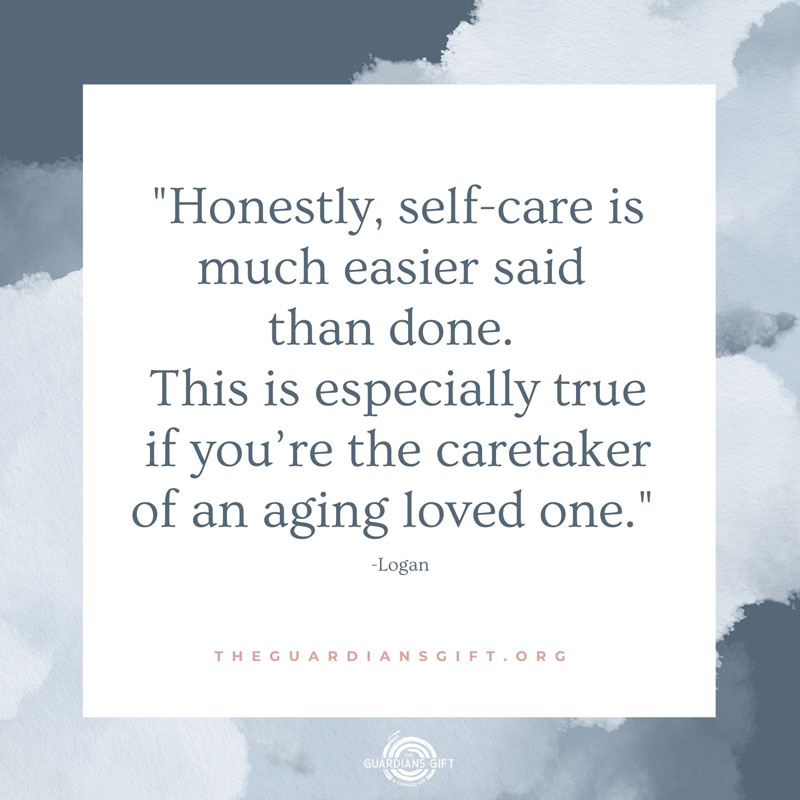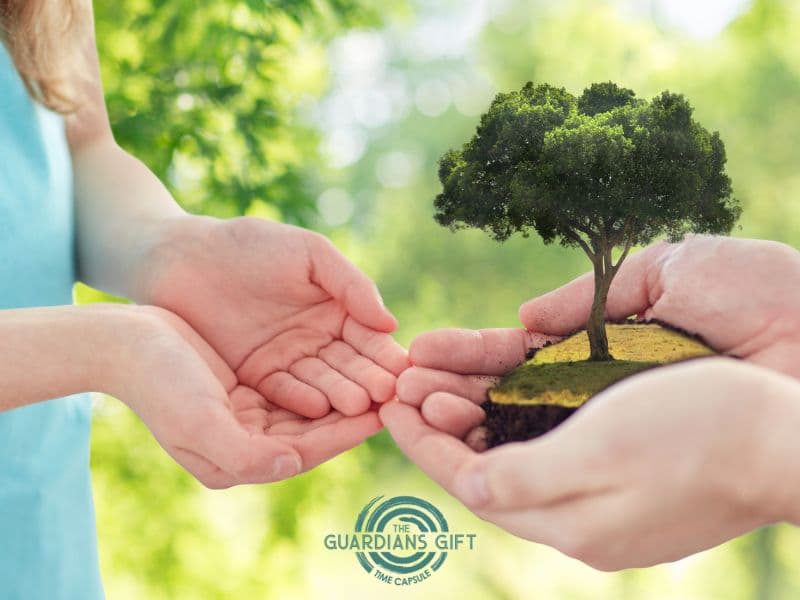In our society at present, one topic continuing to grow in popularity is that of “self-care”. It seems to me that almost everywhere we look, somebody is preaching at us to take care of ourselves. Influencers on social media are showing us how to do “self-care” with face masks and bubble baths. Celebrities on tv tell us their favorite ways to “self-care” by showing us their fancy vacations. Our bosses send us emails telling us to make sure we’re taking care of ourselves. Magazine articles scream the best top 10 “self-care” ideas. During covid these messages emphasizing the importance of self-care only seem to have skyrocketed. Don’t get me wrong, caring for your self is so important. I’m glad that society is finally starting to come around to the idea of taking time for taking care of ourselves. But honestly, self-care is much easier said than done. This is especially true if you’re the caretaker of an aging loved one.
Before I say anything else, if you fall into this category, I want you to know that what you’re doing is incredible. I am so proud of you. The time, energy, and effort it takes to care for an aging loved one is no joke. To say it’s a big responsibility would be a gross understatement. If you get anything out of this blog post, I hope it’s this:
1. Taking care of yourself while taking care of an aging loved one is tough, but it’s not impossible
2. The quality of care you present to others will be much better if it’s flowing from a full cup
3. You don’t have to do it alone
Now you may not have willingly chosen to be your loved one’s caretaker. You may have felt like there weren’t any other options and like you HAD to step up. Maybe you started off wanting to and feeling like you had the capacity to do this, but now you’re feeling burnt out. Both of these paths may lead to resentment. Resentment is a valid, but not very pleasant emotion. It’s not fun to be on either side of resentment. For you, as the caretaker, or for your loved one who might be starting to sense your resentment towards them. This is definitely not the ideal situation for either party. While feelings of burnout and resentment might still pop up, there are ways to prevent the frequency of these feelings. You guessed it… the way to prevent these unpleasantries is by caring for yourself.
We’ve already acknowledged that being the caretaker of an aging loved one is hard work. It’s time consuming. It’s energy consuming. You may end your days feeling exhausted in all senses of the word. So, it probably seems impossible and even silly to think you could fit in some sort of time for yourself. Like I said before, it’s tough, but not impossible. It all comes down to your priorities. As a caretaker you’re probably someone who is used to putting others first, so this may feel unnatural. But I’m going to suggest putting yourself first. I promise, you’re not selfish for doing so. If anything, you will be more equipped with the energy to serve your loved ones better.
There are lots of ways to care for yourself and lots of ways to put yourself first. And get this, they don’t have to be time consuming. Even if it’s just one thing that you start with. When you wake up in the morning, set aside 5 minutes for yourself. It can be longer if you have the time, but for now consider starting small. In these 5 minutes of ~you time~ I suggest picking something that makes you feel FULL. That’ll look different for everybody. A few ideas that may work for you are, 5 minutes of prayer or meditation, journaling, drinking a coffee or tea, stretching. These are small things, but the point is to show yourself some love and remind yourself that you matter through all of this too. You deserve care and love just as much as the person you’re caring for does!
From a place of feeling more cared for, you’ll be able to better serve your loved one. They deserve to be cared for well. While it’s not always easy and every day comes with its own challenges, you can try to give them your best. That’s a lot easier to do when you’re feeling your best first. This quote has become extremely popular, but it rings true: “You can’t pour from an empty cup. Remember to take care of yourself first”.
You might try taking some time for yourself and still feel massively overwhelmed. That’s okay. You’re not superman or wonder woman. You can’t be expected to do it all on your own. It’s hard to admit, but some things are beyond our capacities. It’s important to recognize your limits and know that when you hit them, it’s okay to reach out for help. You may not have any other close family to assist you, or you might, and it still might feel like too much. There are resources out there to help relieve the burden put on caregivers. Depending on where your loved one is at in their journey, you may consider hospice care or assisted living help. Maybe you’re not to that point but you need help getting finances, affairs, funeral plans etc. in order. This is a point where The Guardian’s Gift could be a great resource for you. We’re here to make it a little easier to organize all of the documents, make plans, have everything in one place, and honestly so much more. If you’re overwhelmed, we have guides who can walk alongside you during the process. The point is there’s no shame in needing some additional help!
To recap, taking care of an aging loved one is indeed difficult. Taking care of yourself during this time may feel tough, but it isn’t impossible. Prioritizing your own self care can make a huge impact in the quality of care you are providing for your loved one. And finally, you don’t have to take this all on alone. Asking for help is a radical form of self-care.
“An empty lantern provides no light. Self-care is the fuel that allows your light to shine brightly”- unknown.
Be well and please take care of yourself friends!
~Logan






